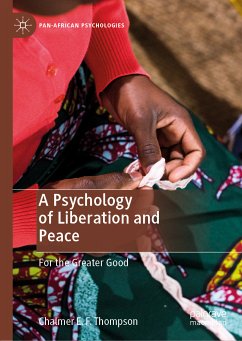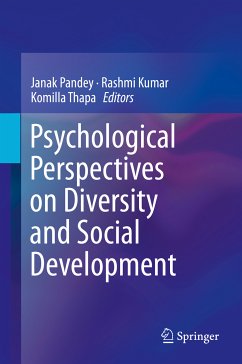
Pan-Africanism and Psychology in Decolonial Times (eBook, PDF)
Versandkostenfrei!
Sofort per Download lieferbar
80,95 €
inkl. MwSt.
Weitere Ausgaben:

PAYBACK Punkte
40 °P sammeln!
This book explores the potential of Pan-African thought in contributing to advancing psychological research, theory and practice. Euro/American mainstream psychology has historically served the interests of a dominant western paradigm. Contemporary trends in psychological work have emerged as a direct result of the impact of violent histories of slavery, genocide and colonisation. Hence, this book proposes that psychology, particularly in its social forms, as a discipline centered on the relationship between mind and society, is well-placed to produce the critical knowledge and tools for imagi...
This book explores the potential of Pan-African thought in contributing to advancing psychological research, theory and practice. Euro/American mainstream psychology has historically served the interests of a dominant western paradigm. Contemporary trends in psychological work have emerged as a direct result of the impact of violent histories of slavery, genocide and colonisation. Hence, this book proposes that psychology, particularly in its social forms, as a discipline centered on the relationship between mind and society, is well-placed to produce the critical knowledge and tools for imagining and promoting a just and equitable world.
Dieser Download kann aus rechtlichen Gründen nur mit Rechnungsadresse in A, B, BG, CY, CZ, D, DK, EW, E, FIN, F, GR, HR, H, IRL, I, LT, L, LR, M, NL, PL, P, R, S, SLO, SK ausgeliefert werden.












